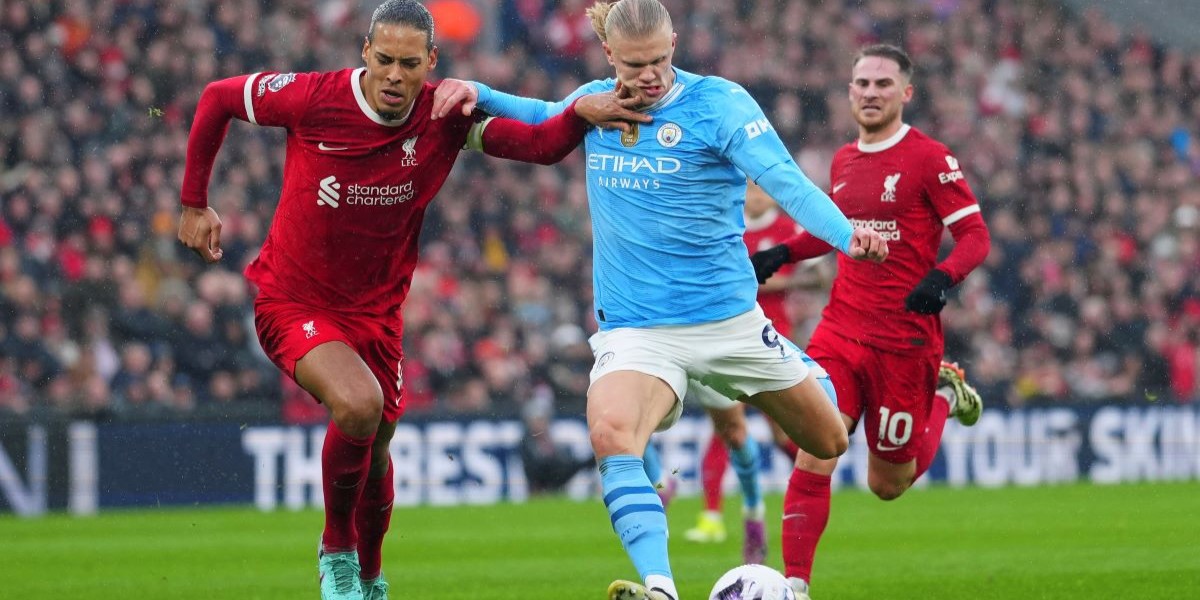Loading player
On Monday the clubs of the Premier League, the main English men’s football league, they voted to open a discussion on the introduction of a cap on team expenses. The vote served, for the moment, only to show the intention to talk about it: in the coming weeks we will move on to a more concrete phase, to reach a decision by the end of the season. The idea is to establish a figure that the teams cannot exceed in a season to pay the players’ salaries, their price tags (i.e. their price when they buy them from other teams), the discussed commissions to the players’ agents (i.e. the sum given to him for having brokered a deal) and other expenses.
The Premier League is the richest football league in the world. His television rights they are worth a lot, almost 12 billion euros for the three-year period 2022-2025 for the sale of the right to broadcast matches in the United Kingdom and abroad: for comparison, the Italian Serie A matches for the three-year period 2021-2024 were sold to just under 3 and a half billion euros. The English teams they spend a lot of money to buy new players: 2.43 billion euros in the summer of 2023, compared to 794 million in Serie A. Despite this, in the last period in the English championship more than one team has had problems due to violations of the financial regulations: Everton and Nottingham Forest have been penalised, Manchester City has suffered various charges, for the moment without being penalised. Above all, the smaller and less economically strong clubs are increasingly convinced that the gap between them and the richer teams is widening, decreasing competition within the Premier League: this is why they are trying to move to change things.
Monday’s vote is important because it is the first in which the existence of a problem has been formally recognized, and above all in which a solution is hypothesized. For the motion to pass, a two-thirds majority of the teams in the championship was needed, therefore fourteen votes in favour: there were sixteen, with three against (Manchester City, Manchester United and Aston Villa) and one abstention (Chelsea). Now a discussion will start on the spending ceiling, which the English media calls spending cap and should not be confused with the salary cap: the latter is in fact a ceiling referring only to salaries, while the Premier League clubs are thinking of limiting the total expenses of the teams.
The spending limit being discussed would take effect from the 2025-2026 season. The hypothesis that has circulated so far is to set it at 4.5 times the amount that the last placed team in the previous championship earned from television rights (each team earns different amounts from the sale of TV rights, based on sporting results and following). Last year, last-placed Southampton received 120 million euros from TV rights: starting from this figure, the spending ceiling would be around 540 million euros for each team. The hypothesis of setting the limit at 4.5 times the earnings of the television rights of the last in the standings is a compromise between the request of the less rich teams, who proposed to multiply the starting figure by 4, and that of the richer teams , who instead asked to multiply it by 5 to have more room for maneuver.
Mykhailo Mudryk and Christopher Nkunku, players of Chelsea, a team that in the last two years has spent around a billion euros just to buy players (AP Photo/Kirsty Wigglesworth)
With parameters like this, some teams would already be outside, or almost, outside the limits: according to the estimates of the specialized site The AthleticChelsea in 2022-2023 he spent for salaries, transfers and commissions a figure close to 630 million euros, Manchester City around 586 million and Manchester United around 530 million. It seems no coincidence, therefore, that both Manchester teams opposed a possible spending limit and that Chelsea abstained from the vote.
Less wealthy clubs think that by introducing a spending cap, the gap between Premier League teams would narrow, making the championship more uncertain, balanced and exciting. The richest clubs, on the other hand, believe that imposing a cap on spending goes against the rules of free competition and argue that they can spend a lot because they generate a lot of revenue (teams like Manchester City, Manchester United and Liverpool last season they generated revenues between 802 and 683 million euros). Furthermore, by limiting spending possibilities, the main clubs fear that the Premier League could lose its primacy as the richest, and therefore most attractive, league in Europe, also devaluing the television rights which are currently sold at such high prices.
Even the association representing footballers, the Professional Footballers’ Association, has for the moment shown a certain skepticism about the possible new rule. The PFA has said that it will oppose any measure that imposes a limit on players’ salaries: the ongoing discussion, as mentioned, does not concern the imposition of a limit on salaries alone, but it is clear that if it were to be approved it would lead to teams also reduced spending on player salaries.
– Read also: English football is starting to deal with the rules
